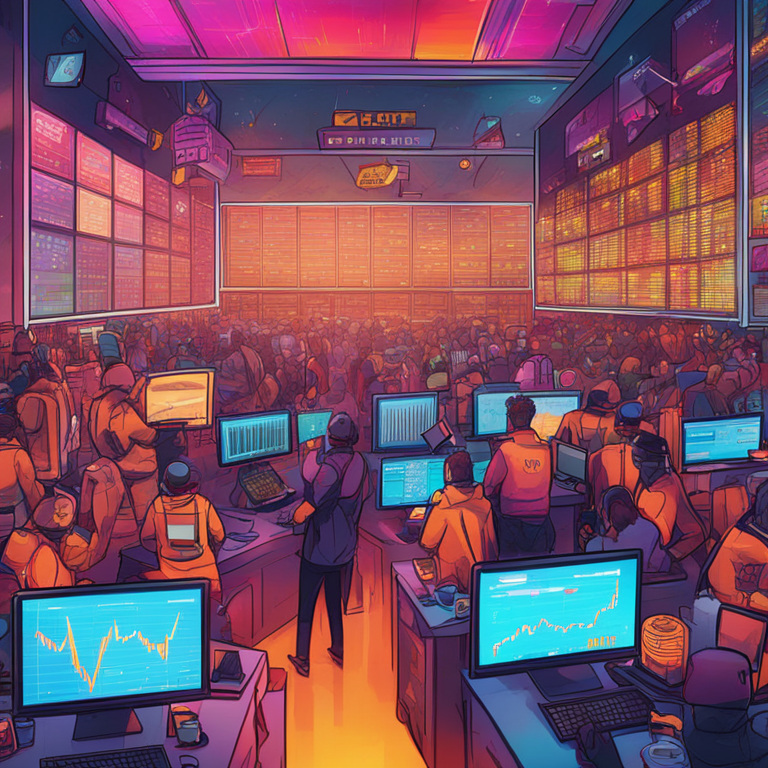Donald Trump Earns ‘First Crypto President’ Title, Former CFTC Commissioner Claims
- byAdmin
- 16 May, 2024
- 20 Mins
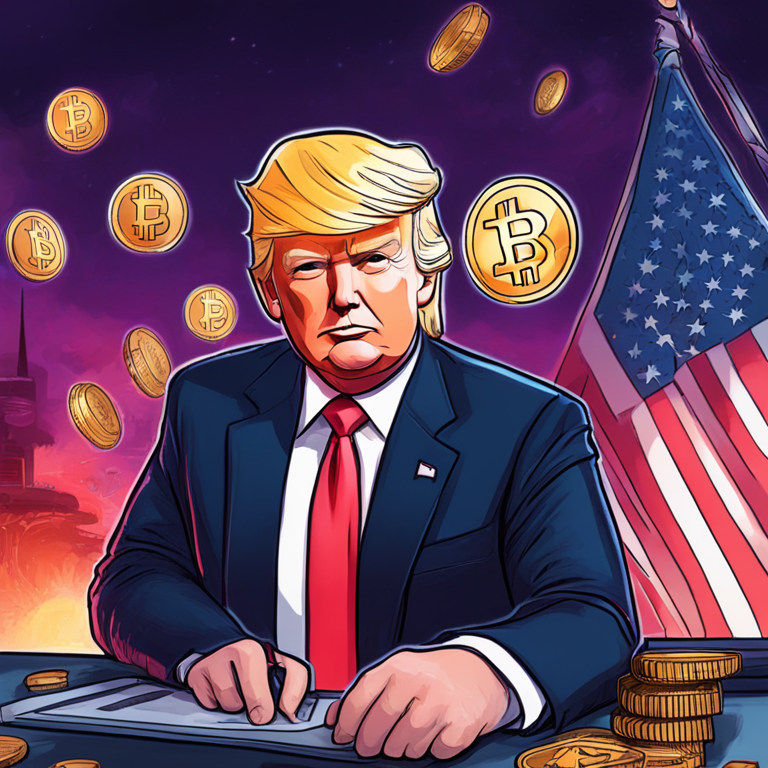
Introduction
Alright, crypto aficionados, buckle up! We’re diving into a piece of news that’s got everyone talking (and tweeting) in the blockchain universe. Former President Donald Trump has been labeled as “America’s first crypto president,” according to Chris Giancarlo, a former Commodity Futures Trading Commission (CFTC) commissioner. If your reaction is anywhere from a surprised gasp to a curious eyebrow raise, you’re not alone. Let’s break down why the former reality TV star and 45th president of the U.S. is now being associated with Bitcoin and its digital cousins.
Trump's Crypto Designation
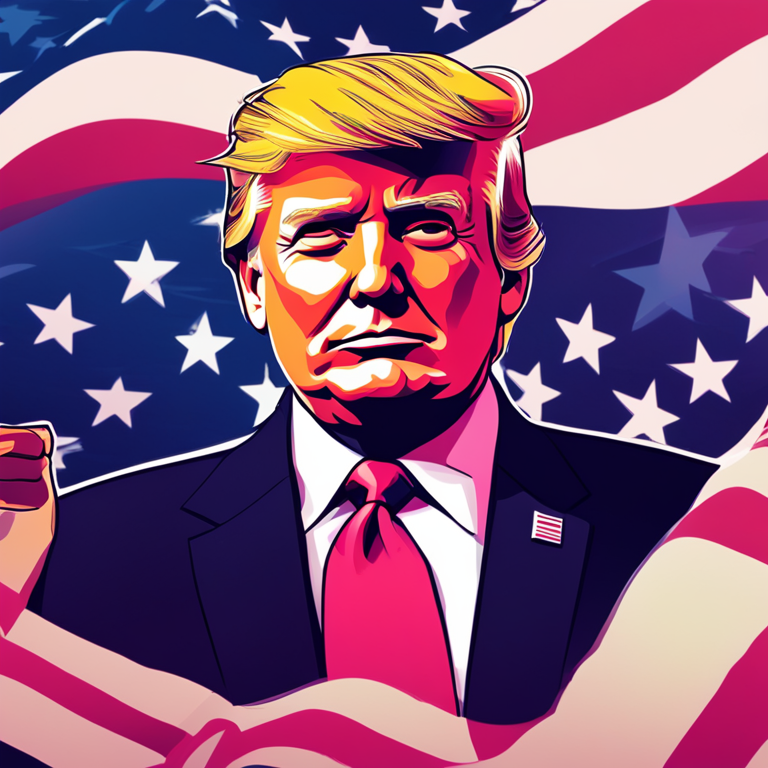
During a recent crypto policy event in Washington, DC, Giancarlo highlighted that Trump’s alleged “crypto fame” isn’t as overnight as one might think. In fact, it dates back to his first year in office in 2017. This was when his administration gave the green light for Bitcoin futures contracts—yes, folks, that’s the same financial instrument that had Wall Street both fascinated and slightly panicked. Giancarlo's endorsement was more than just a pat on the back; it was an acknowledgment that Trump might've kick-started serious regulatory conversations surrounding digital currencies. And if you're wondering how Trump feels about all this? The man himself recently hinted that he’s “now good with” crypto—talk about coming full circle!
Bitcoin Futures Approval
Let’s time travel back to 2017 when Bitcoin was still relatively the wild, wild west of the financial world. Around this time, the Chicago Mercantile Exchange (CME), one of the world’s largest derivatives marketplaces, boldly introduced Bitcoin futures. This came a year after the same concept was rolled out by the CBOE. The approval from Trump's administration provided a regulatory framework that helped Bitcoin go mainstream in some financial circles. As Giancarlo put it, this led to Bitcoin being priced in U.S. dollars—a big step toward its legitimization. So while Trump might often be remembered for a slew of headline-grabbing reasons (um, most of Twitter can remind you), his role in the evolution of cryptocurrency is now etched in digital stone. Trump's potential re-election hints are also causing ripples, with him pledging to end what he calls “cryptocurrency hostility.” Whether he gets to write another chapter in this crypto saga, only time (and votes) will tell.
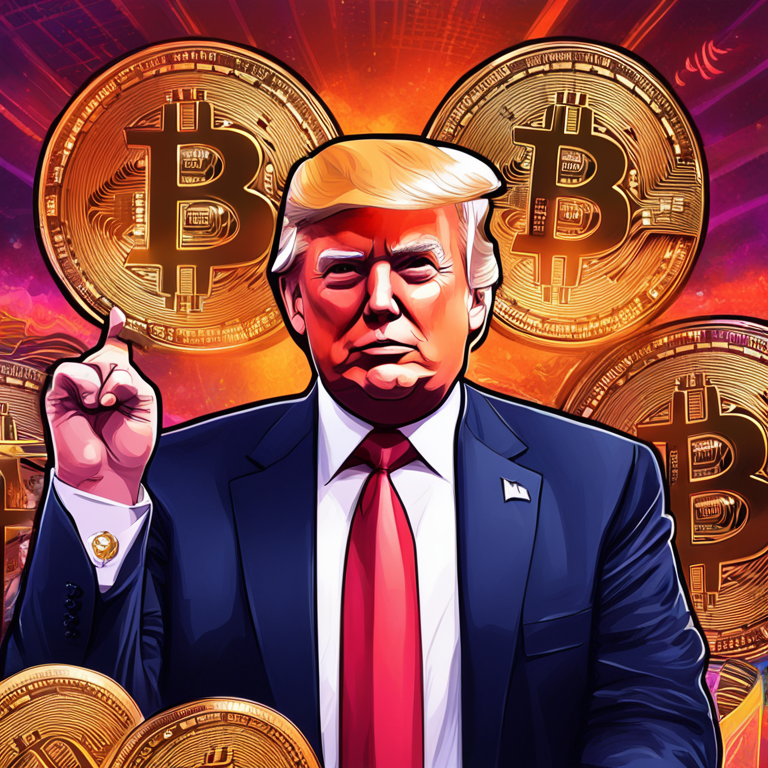
Crypto's political trajectory in US elections
When Donald Trump took the Presidential oath on January 20, 2017, America was not yet split between Blockchain believers and crypto skeptics. Back then, the term "crypto" might as well have referred to something from a sci-fi flick for most politicians. Fast forward to the present day, and the cryptoverse is floating on the edge of becoming a significant point of contention in an upcoming presidential election for the first time. Chris Giancarlo, a former commissioner of the Commodity Futures Trading Commission (CFTC), highlighted this point during a Washington DC crypto policy event. According to Giancarlo, in 2017, the 45th president of the United States, Donald Trump, introduced Bitcoin futures contracts, inadvertently marking the start of what we might call his crypto flirtation period. That move essentially laid down regulatory groundwork and paved the way for digital commodities, ensuring Bitcoin was priced in US dollars—significant since being pegged to the greenback gives legitimacy and stability to an otherwise volatile asset.
Fast-forward to today and crypto is a hot potato bouncing around the political frying pan. Will it spell sizzling debates in the 2024 election? Candidates are already positioning themselves on the topic like tech-savvy chess players. Trump's sudden crypto cheerleading could signal that the digital currency debate might hog the spotlight more than tax reforms or healthcare this election cycle. Who’d have thought bytes and blockchain would become the presidential buzz? Stay tuned for an action-packed political thriller where the protagonist is a decentralized currency.
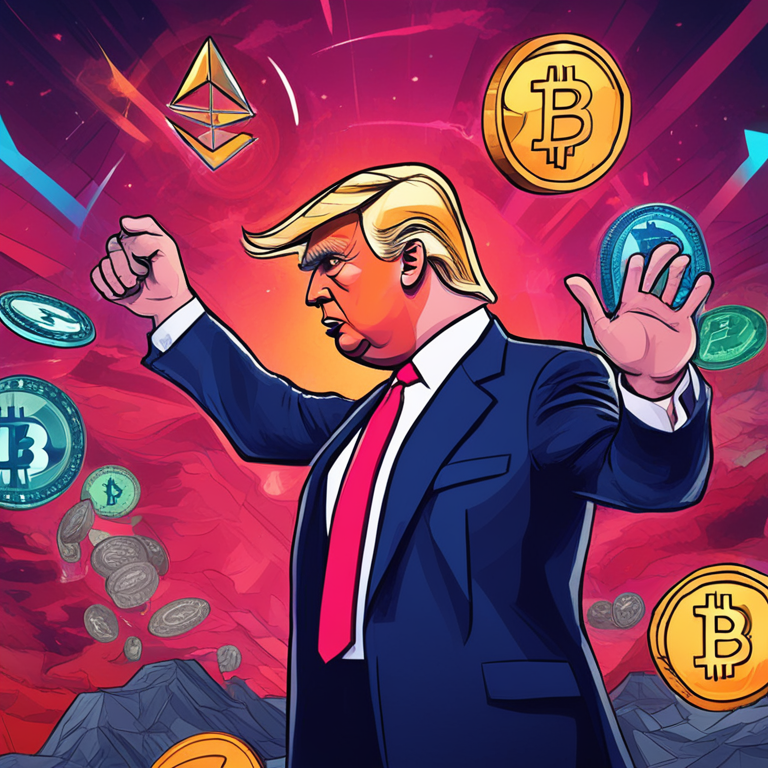
Donald Trump’s changing views on crypto
Remember July 2019? Yes, the era when Trump likened cryptocurrencies to vaporware, labeling them as “not money” and dissing their unpredictable swings. He even threw a few stones regarding their role in nefarious trades, like drug trafficking. It's an interesting plot twist, considering that now he’s donning the "crypto advocate" cape. Cue the dramatic reversal theme music. Trump’s change of heart is as startling as one of those reality TV plot twists he's famous for. What drive this U-turn? Perhaps it’s the growing acceptance of crypto in mainstream finance or maybe whispers within political corridors predicting a digitally-financed future. Trump isn’t known for putting all his chips on a losing bet.
Now picture a parallel universe where Trump’s 2019 critique held sway. Bitcoin trading might still be confined to shadowy web corners, far from the regulated futures market built during his presidency. Interestingly, Trump's revamped stance could have a domino effect on other politicians and policy-makers sculpting the fast-evolving crypto landscape. So, what’s the new narrative? It’s anyone’s guess until the next presidential debate transforms into a face-off over digital wallets and decentralized currency.
Industry reactions
In the crypto community, Trump’s newly acquired title of "America’s first crypto president" is generating a mix of applause and cautious optimism. On one hand, industry leaders don't mind the idea of a high-profile figure advocating for crypto-friendly policies. Take Charles Hoskinson, for example—Cardano’s founder didn’t shy away from blasting President Joe Biden for allegedly placing roadblocks in the crypto realm. Meanwhile, Kyle Bligen from the Chamber of Progress spots a silver lining with the current administration, holding out hope for laws inoculating crypto from future uncertainties.
The Biden administration, however, isn't going down without a fight. Regulatory tug-of-wars—hello, Securities and Exchange Commission (SEC) and CFTC—have kept courts busy deciding whether digital assets belong in the commodities camp or the securities squad. For now, crypto legislation remains a bipartisan headache, with Congress seemingly flipping a coin over each new bill. This power struggle hints at an interesting future where the legal landscape is as unpredictable as crypto prices itself.
Revisioning the script, Donald Trump plays the hero who could stabilize crypto volatility with favorable legislation or leave it hanging in legislative limbo worse than a badly timed trade. Whether his stance will garner support or skepticism remains as speculative as investing in Dogecoin. Meanwhile, the entire industry waits with bated breath for the next chapter in the 2024 crypto-political saga.

Regulatory landscape
Navigating the regulatory landscape in the crypto world can feel a bit like trying to find your way out of a corn maze under a Halloween moon—except instead of eerie scarecrows, you’ve got compliance officers and tax auditors waiting around every corner. The introduction of Bitcoin futures trading back in 2017 during President Trump's administration was a significant milestone. It essentially marked the intersection where the wild, wild west of cryptocurrencies started getting a modern, rule-abiding zip code.
Back in the saddle, Trump is now being lauded as "America’s first crypto president" by none other than Chris Giancarlo, a former commissioner of the Commodity Futures Trading Commission (CFTC). If that sounds like a magic trick, maybe it is—Trump reportedly managed to pull a Houdini and switch from a crypto skeptic to its advocate overnight. In 2019, he made headlines calling Bitcoin and other cryptocurrencies “not money,” decrying their volatility and potential for crime. Now, he’s promising to stop all crypto hostility if he takes another spin in the Oval Office. Cue the political popcorn!
During Trump’s presidency, the Chicago Mercantile Exchange (CME) jumped on the crypto bandwagon, launching its Bitcoin futures trading in 2017. That move was akin to putting the first respectable building on the proverbial Crypto Main Street, ensuring Bitcoin prices started being measured in good ole' U.S. dollars, much to the relief of those who’d been trying to make sense of the previously unregulated chaos. It’s like Wild West saloons being replaced by banks; it made crypto's future look a bit less like a shootout and a bit more like a civilized conversation.
Fast forward to today, and it’s evident that the political winds have shifted dramatically. Cryptocurrency has emerged from the shadows of niche forums to take a seat at the main election debate table. Giancarlo himself admitted that back in 2017, crypto wasn’t a politicized issue. Oh, how times have changed! Now, regulatory debates are hotter than a jalapeño in a microwave, with discussions on whether digital assets should be considered commodities or securities.
The ongoing jurisdictional tug-of-war between the SEC and CFTC under President Biden’s administration has kept the topic lively. Some worry whether Biden’s regulations are stuffing crypto innovation into a bureaucratic straightjacket, while others think that, with the right tweaks, his tenure could usher in beneficial laws for the crypto sphere. Frankly, it's a legislative soap opera out there, complete with cliffhangers and plot twists.
The good news is that Congress is actively wrestling with bipartisan legislation aimed at clarifying these muddy waters. Courts too are playing their part, getting down to the nitty-gritty of what these digital assets should legally be classified as. It's a complex dance, much like trying to tango with a tango partner who keeps changing their step mid-routine.
Summing it up, the crypto regulatory landscape might seem more like a patchwork quilt made on a caffeine binge, but it’s evolving. And in the middle of it all stands a curious figure—Donald Trump—who has somehow managed to become a pivotal character in the crypto saga. Whether he’ll continue to be the guy who reshapes the landscape or just a colorful footnote in crypto history, only time will tell. Until then, it’s a ride worth watching!
Ethan Taylor
Ethan Taylor here, your trusted Financial Analyst at NexTokenNews. With over a decade of experience in the financial markets and a keen focus on cryptocurrency, I'm here to bring clarity to the complex dynamics of crypto investments.


